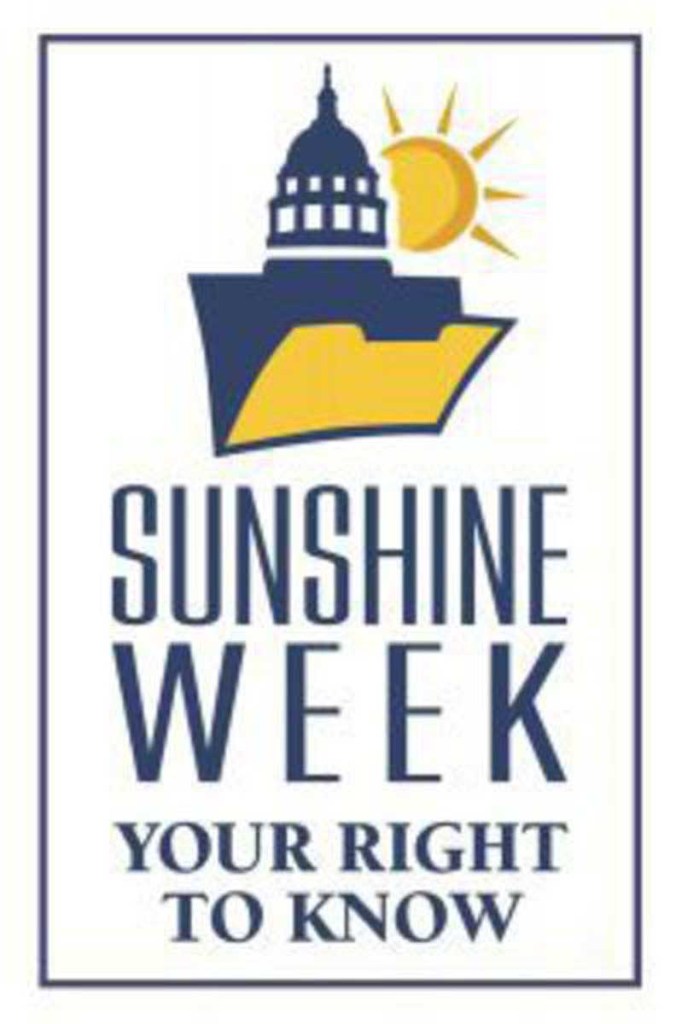Speak up, lawyer up or play hardball to tackle violations
Published 1:00 pm Wednesday, March 13, 2019

- sunshine logo
EDITOR’S NOTE: Sunshine Week is an annual nationwide celebration of access to public information and what it means for the public. The week is sponsored by the American Society of News Editors and the Reporters Committee. Sunshine Week is March 10-16. This story is one in a series of related articles being published this week.
VALDOSTA — So you think your local government has been illegally meeting in secret or withholding public records. What do you do?
There are a number of answers. The starting point, according to attorney David E. Hudson’s “The Georgia Sunshine Laws Handbook,” is to simply speak up.
“If you believe that a governing board or agency is illegally closing a meeting, tell them so. State that the Open Meetings Law … requires that the meeting be open. Ask them to cite the exemption under which they are closing the meeting.”
If the meeting remains closed, Hudson said, then put it in writing; file a written protest or send the agency involved a demand letter seeking minutes of the meeting and access to future meetings.
Another option is to “lawyer up.”
“Go hire a lawyer and file a lawsuit,” said Jennifer Colangelo, Georgia’s assistant Attorney General.
Alternately, an informal mediation program run from the Attorney General’s Office can sometimes get results, she said.
“Call or email us with the problem,” Colangelo said. “The A.G.’s office can try to work things out and get a record that’s being sought.”
She said sometimes the words “attorney general” on an envelope can make a difference.
“About once a year we get a case with a really, really recalcitrant government agency,” she said. “We send a letter and things get straightened out.”
The “vast majority” of records and meetings cases are due to people not understanding the law, Colangelo said.
“It could be new employees, it could be new councilmen, or it could be a longtime employee who hasn’t gotten updated training in 30 years,” she said.
Once in a while the problem boils down to a person in a position of authority who decides that “no one tells me what to do” until the city or county attorney advises them otherwise, Colangelo said.
Another method to handle tough cases with open meetings problems is to play hardball.
Dwain Walden, the former editor of The Moultrie Observer, faced this problem in the mid-1980s. He had proof the local county commission was meeting in secret “for discussions blatantly not in the exceptions for executive session,” Walden said. Changing the county charter was one of the items of discussion, he said.
In Georgia, county commissions can only meet behind closed doors — “executive session” — to discuss real estate matters, personnel matters, litigation with the county attorney, confidential tax matters and certain records, according to “Georgia’s Open Meetings and Open Records Laws, 7th Edition.” Votes cannot be held in executive session, only discussions.
When he confronted the commission chairman, “I tried to handle it gentlemanly, assuming that maybe they didn’t know they were in violation,” Walden said.
The result? “The chairman laughed it off,” he said.
First, Walden wrote editorials decrying the practice of secret meetings. Then he wrote an editorial specifically targeted at the local grand jury.
“It said, ‘This is a crime and you should be looking into this,’ ” he said.
The grand jury did indeed look into it. The commission chairman was indicted on seven counts of violating Freedom of Information laws and lost a recall election by a landslide, Walden said. No commission actions had to be nullified because they had only held secret discussions, not votes, he said.
“We did not file a lawsuit and there was no output of money,” Walden said.
Terry Richards is senior reporter at The Valdosta Daily Times.





